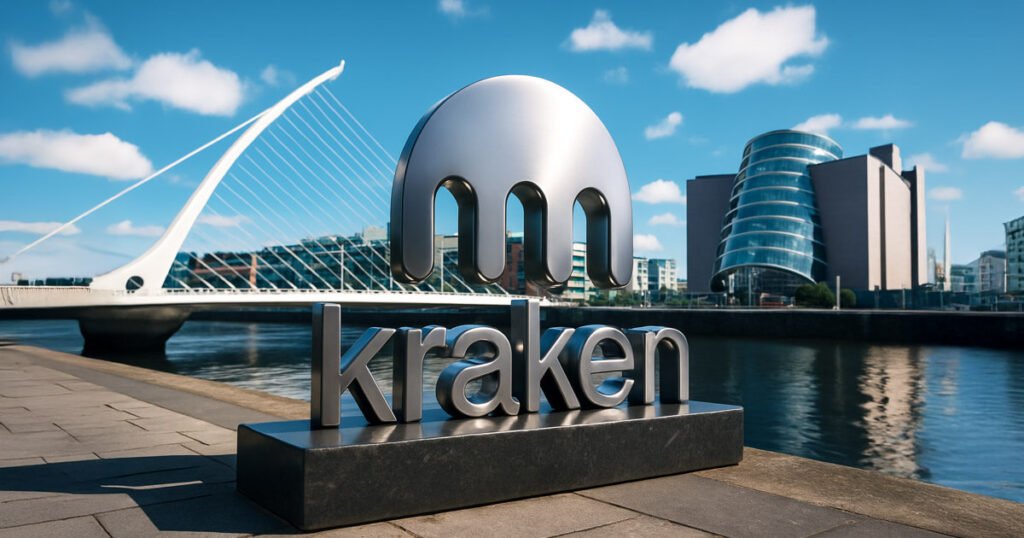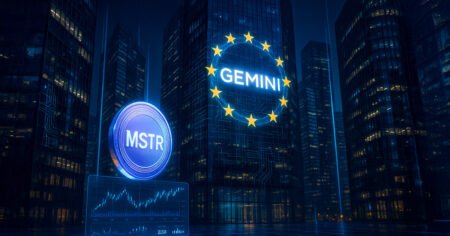Kraken Secures MiCA License: A Milestone in European Crypto Regulations
In a groundbreaking move, Kraken has become the first major global crypto exchange to obtain a full Markets in Crypto-Assets (MiCA) license from the Central Bank of Ireland. This significant achievement enables Kraken to offer regulated digital asset services across all 30 countries within the European Economic Area (EEA). The license—granted on June 26, 2023—positions Kraken advantageously ahead of the European Union’s imminent MiCA compliance deadline for crypto asset service providers. By securing this licensing, Kraken can streamline its operations and continue to provide a robust suite of services across the continent.
The MiCA license encompasses all seven regulated activities defined under the new EU framework, including custody, trading, portfolio management, and payments. Importantly, it consolidates Kraken’s existing virtual asset service provider (VASP) registrations in countries such as France, Italy, Spain, and the Netherlands under a single, unified regulatory umbrella. This simplifies Kraken’s operational landscape and fortifies its legal standing across the bloc in accordance with MiCA’s stipulations for crypto exchanges. This regulatory advancement is particularly timely, as MiCA marks the EU’s first comprehensive regulatory framework for digital assets, effectively replacing 27 separate national systems.
While the provisions specifically addressing stablecoins will be enforced starting June 30, 2024, the core rules for exchanges and custodial services began to take effect at the end of last year. Crypto firms that fail to obtain the necessary authorization will face a sunset period running through July 2026, minimizing disruptions for compliant entities. The proactive licensing strategies adopted by Kraken and other major exchanges are evidence of a broader industry shift towards enhanced regulatory certainty.
Notably, Kraken’s license approval follows closely on the heels of a similar achievement by Coinbase, which secured its own MiCA license through Luxembourg’s Commission de Surveillance du Secteur Financier. This quick succession of approvals underlines a strategic focus among prominent U.S. crypto firms to establish regulatory clarity in Europe, even as they navigate a patchwork of rules back in the United States. The licenses granted to Kraken and Coinbase not only provide immediate operational advantages but also facilitate faster onboarding processes and easier market access, positioning them favorably in a competitive landscape.
Kraken’s European operations already account for about 25% of its global spot trading volume, underscoring the importance of the EU market to its overall business strategy. Furthermore, Kraken has reported that over 35% of the euro-denominated crypto liquidity flows through its platform. These statistics likely shaped the firm’s regulatory approach and roadmap, reinforcing its commitment to operational integrity and growth. In an interesting move to align with MiCA’s stablecoin regulations, Kraken eliminated five stablecoins—including Tether’s USDT—from its offerings to EEA users back in 2024. This proactive step was aimed at ensuring compliance before the regulatory framework became fully binding.
In parallel to its MiCA pursuits, Kraken has also secured a Markets in Financial Instruments Directive (MiFID) license with a Cyprus-based entity, permitting it to offer regulated crypto derivatives within the EU. This license, announced on February 3, 2023, positions Kraken uniquely among a select group of exchanges that can operate within both spot and derivatives markets under compliant frameworks. The ability to let customers engage in futures and margin trading under established investment firm rules further solidifies Kraken’s intent to expand its service offerings in a compliant manner.
Although the MiCA license provides Kraken with valuable passporting rights, these privileges will only be activated once the Central Bank of Ireland uploads the authorization to the European Securities and Markets Authority’s (ESMA) central register for crypto asset service providers. The timeline for this upload remains uncertain, and in the interim, individual regulators in various countries may impose their own anti-money laundering measures, potentially creating additional local onboarding hurdles, even under the harmonized MiCA framework.
As the sunsetting period for the MiCA compliance deadline approaches, the landscape for crypto regulations is becoming increasingly clearer. ESMA has urged crypto firms to prepare for the robust technical standards that are anticipated to evolve through 2025, prompting exchanges like Kraken and Coinbase to secure their licenses early. By doing so, these firms are not only mitigating potential future disruptions but are also easing the process for institutional onboarding, thereby establishing a stable legal foundation for their expansion initiatives.
In conclusion, Kraken’s successful acquisition of the MiCA license signifies a pivotal moment for both the firm and the European crypto landscape. As co-CEO Arjun Sethi stated, the licensing reflects Kraken’s commitment to long-term growth and innovation within regulated environments, positioning it to broaden its range of product offerings in the rapidly evolving digital asset space. As the EU continues to bolster its regulatory framework, Kraken’s proactive steps demonstrate a forward-looking approach that will likely yield dividends as the market matures.

















